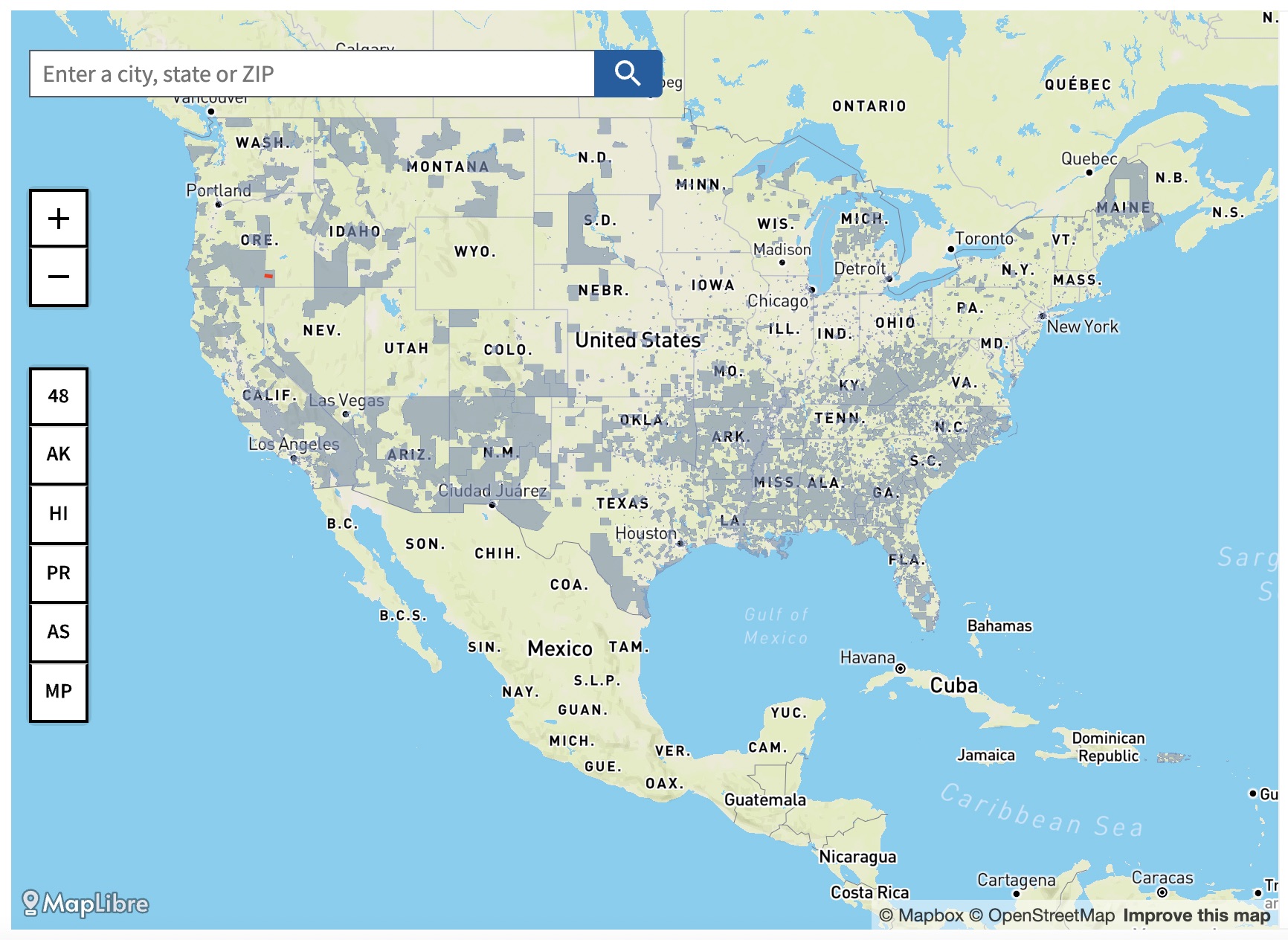White House Moves to Identify 'Disadvantaged' Communities in Line for Federal Funding Boost

President Biden gives remarks at a Black History Month celebration event on Feb. 28, 2022 in the East Room of the White House on February 28, 2022 in Washington, DC. Getty Images/ Anna Moneymaker

Connecting state and local government leaders
The administration wants to steer more money to areas most in need and has released a draft of places that should get more help.
In a significant step toward changing how federal funds are distributed, the Biden administration has preliminarily identified nearly a third of the nation’s census tracts as “disadvantaged” and in line for more help from the federal government.
A week after taking office last year, Biden said he wanted to address historic inequities that have left disadvantaged communities around the country behind in receiving federal funding.
Federal agencies are still working through exactly how to do this. But in the meantime, the White House Council on Environmental Quality has provided a preliminary glimpse at which communities might benefit from Biden’s vision.
The first draft of the database identified 23,410 census tracts, or nearly a third of the nation, as disadvantaged. They represent a sweeping list of communities that could see more federal funds headed their way for climate change, clean energy and energy efficiency, clean transit, affordable and sustainable housing, training and workforce development, the remediation and reduction of legacy pollution, and the development of critical clean water infrastructure.
Among the communities described as “distressed” in the draft Climate and Economic Justice Screening Tool are big cities like Newark, New Jersey, but also rural areas like Mason County, Washington, which has seen a decline in the timber industry after protections were put in place decades ago to preserve the spotted owl.

To identify the areas, the administration considered a wide range of factors, from the expected loss of agriculture and population due to climate change, to traffic volume and diesel particulate exposure, to the cost of housing, to the rate of asthma, diabetes and heart disease in the community.
A solace for areas initially not considered distressed is that the database is a work in progress. Saying it wants to make sure it is not missing any communities in need, the environmental council posted a notice in the Federal Register, asking local and state government officials, academics and members of the public to examine the database and suggest ways to refine it by April 25.
“The hope is that the tool reflects the realities on the ground and we are properly identifying disadvantaged communities,” the council official said.
Particularly valuable will be national datasets that allow the government to compare communities around the country, the official said. But the council would also welcome local studies and data to further refine the tool.
Monica Lewis-Patrick, a member of a White House advisory committee and president and CEO of a Michigan water justice organization, We the People of Detroit, said she hoped relevant data not usually considered in federal funding decisions, like data gathered by community activists, will be included.
“It is a way to help identify which communities have been marginalized, underserved, and overburdened by pollution – so that the federal government can do a better job of delivering the benefits of programs and investments to the places that need them most,” Brenda Mallory, chairwoman of the White House’s Council on Environmental Quality, told the Biden’s environmental justice advisory council on Thursday.
Administering Biden’s Vision
Through an executive order in January 2021 creating the Justice40 Initiative, Biden instructed federal departments to find a way to make sure that 40% of federal investments to address issues like climate change, affordable housing, health care and workforce development -- whether it be through grants, benefits to individuals or government contracts -- go to communities that are “disadvantaged, marginalized, underserved, and overburdened by pollution.”
“We’re trying to fundamentally change the way the federal government operates,” an official with The White House Council on Environmental Quality told Route Fifty last week.
Federal departments and agencies are still working through exactly how to carry out Biden’s vision. An interim guidance issued last July by the Office of Management and Budget instructed them to determine which programs are covered by the executive order and figure out how to measure whether or not 40% of investments are going to disadvantaged communities.
However, the guidance put 21 federal programs on a fast track, ordering the departments that administer them to develop a draft plan for implementing the order and identify any barriers by last fall.
The pilot project includes programs like:
- The Department of Homeland Security’s Flood Mitigation Assistance Program.
- The Energy Department’s Weatherization Assistance Program.
- The Transportation Department’s Low or No Emissions Vehicle Program.
- The Environmental Protection Agency’s drinking water and clean water state revolving funds, the brownfields Program and the Superfund Remedial Program.
Ultimately, there could be limits to the administration’s effort, acknowledged Catherine Coleman Flowers, founder of the Center for Rural Enterprise and Environmental Justice and a member of the advisory committee. “With all new efforts, the need is greater than the available resources. Some may feel left out,” she said.
Still, Flowers said focusing on communities, that based on data are in need, will help “level the playing field,” she said. “Access to federal funds will no longer just go to those communities that can afford to pay lobbyists or are well connected politically,” she said. “For the first time ever there is an intentional effort to identify and get resources to disadvantaged communities.”
A spokeswoman for Sen. Shelley Moore Capito of West Virginia, the top Republican on the Senate Environment and Public Works Committee, had no immediate comment.
Racial Demographics Not a Factor
Lewis-Patrick acknowledged that in the current polarized political environment it remains to be seen if the effort will last beyond the Biden administration. The idea of shifting more funds toward distressed areas could be attacked as primarily benefiting minorities in urban areas.
However, the first draft of the database shows distressed communities scattered in urban and rural areas.
A fact sheet about the screening tool said racial demographics were not among the factors considered. The diversity of communities identified, Lewis-Patrick said, shows the effort would not only benefit people of color in urban areas but “poor White people, Navajo nations, Hispanic people.” That could allow it to have a lasting impact, she said.
“If we do it the right way, it’s easy to see the greater good,” she said.
Kery Murakami is a senior reporter for Route Fifty based in Washington, D.C.

NEXT STORY: The States and Counties Taking Russian Vodka Off Liquor Store Shelves



